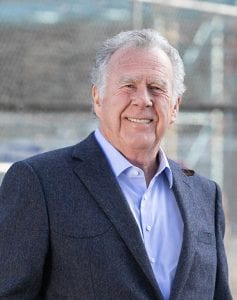Opportunities in Our Own Lowcountry Backyard
April 21, 2020By Jim White, Ph.D.
As the COVID-19 crisis sweeps the country, people living in thousands of impoverished American communities are likely feeling even more anxious than ever. Distressed communities may have fewer resources in place for urgent health care: fewer hospitals, fewer ambulances, fewer walk-in clinics, fewer health care workers. And, in those communities, health and safety fears often are compounded by preexisting stressors like poverty, unemployment, drugs, and crime.
I know how it feels to have been dealt a bad hand and face economic hardships: I was raised in Salem, South Carolina, in an abusive, low-income rural environment, in a sharecropper cabin, in fact. So I care about helping people and giving new life to distressed communities.
Fortunately, there is a clear and immediate strategy that can make this happen: investing in Qualified Opportunity Zones (QOZs) through Qualified Opportunity Funds (QOFs). The concept started in 2015, when the chairs of a Washington-based think tank wrote an article proposing a way to reduce the impact “of the uneven economic recovery through geographically focused economic policies designed to counteract poverty with special incentives to private investors.”
The report caught the attention of Republican South Carolina Senator Tim Scott, an African-American politician who grew up in a poor area of North Charleston and was raised by a single mom who worked sixteen-hour shifts as a nursing assistant to make ends meet.
Inspired by his mentor, a local Chick-fl-A owner named John Moniz, Scott finished college and eventually became a Republican businessman and politician. South Carolina governor, Nikki Haley (later U.S. ambassador to the United Nations 2017-2018), named him as the mid-term replacement for retiring Senator Jim DeMint. Scott won his first full-term election in 2016. Dedicated to fighting economic hardship and unemployment, Senator Scott proposed various Opportunity Fund bills; they were bipartisan and even included Democratic New Jersey Senator Cory Booker as a co-sponsor. Scott introduced the idea of QOZs to President Trump who was supportive, and ultimately it became part of the Tax Cuts and Jobs Act of 2017.
To date, nearly 8,800 distressed communities across the country have been identified as Qualified Opportunity Zones – that is, neighborhoods which would benefit greatly from an influx of investment dollars to reinvigorate businesses, rebuild infrastructure and bolster residents.
Right here in Charleston, there is an opportunity zone in our own backyard: Census Tract 45019005400.
Individual or institutional investors can channel their funds into that tract in a number of ways: by opening a new business, such as a multifamily building, a central warehouse or storage facility, or a factory to manufacture goods that at the moment are being produced in an offshore market but which should be reshored (a lesson the coronavirus is fast teaching us.) The investment could include repurposing vacant space or it could be new construction.
Here is what happens when funds are channeled into distressed communities: more jobs are created and the salaries are better. More people will want to relocate to these areas, which will increase real estate values and breathe new life into local shops and stores. When residents and business owners are doing well, they spend more money on beautifying their homes, storefronts, public buildings, streets, parks, and monuments. The failing infrastructure will improve, crime will decrease, and better health care will be available for residents. Spread out over many communities, QOFs can help our nation flourish as a whole.
The other upside is for the investors: they will benefit from the initiative’s capital gains tax breaks; they will make money, possibly even an outsized ROI; they will have a means of diversifying their own portfolios away from equities and into new revenue streams and avenues of investment which, as we’ve experienced in this volatile and terrifying market, is critical; they can use the strategy for multigenerational long term financial planning; and they will have the satisfaction of knowing they are impacting low-income urban and rural communities and potentially the lives of millions of people.
Political barriers should not factor into this equation. As the joint sponsorship between Senators Scott and Booker shows, revitalizing opportunity zones through Qualified Opportunity Funds is a bipartisan effort that will benefit not just South Carolina but the entire country.
 Jim White, PhD is Chairman and CEO of Post Harvest Technologies, Inc. and Growers Ice Company, Inc., Founder and CEO of PHT Opportunity Fund LP, and Founder and President of JL White International, LLC. His new book is a heartfelt rallying cry for investors: Opportunity Investing: How to Revitalize Urban and Rural Communities with Opportunity Funds, launched March 31, 2020.
Jim White, PhD is Chairman and CEO of Post Harvest Technologies, Inc. and Growers Ice Company, Inc., Founder and CEO of PHT Opportunity Fund LP, and Founder and President of JL White International, LLC. His new book is a heartfelt rallying cry for investors: Opportunity Investing: How to Revitalize Urban and Rural Communities with Opportunity Funds, launched March 31, 2020.
Dr. White was raised in South Carolina. He holds a BS in civil engineering, an MBA, and a doctorate in psychology and organizational behavior. He acquires struggling businesses to revive and develop them into profitable enterprises using his proprietary business turnaround strategy. To date, he has generated more than $1.8 billion in revenue. Visit www.PHTOpportunityFund.com.
















